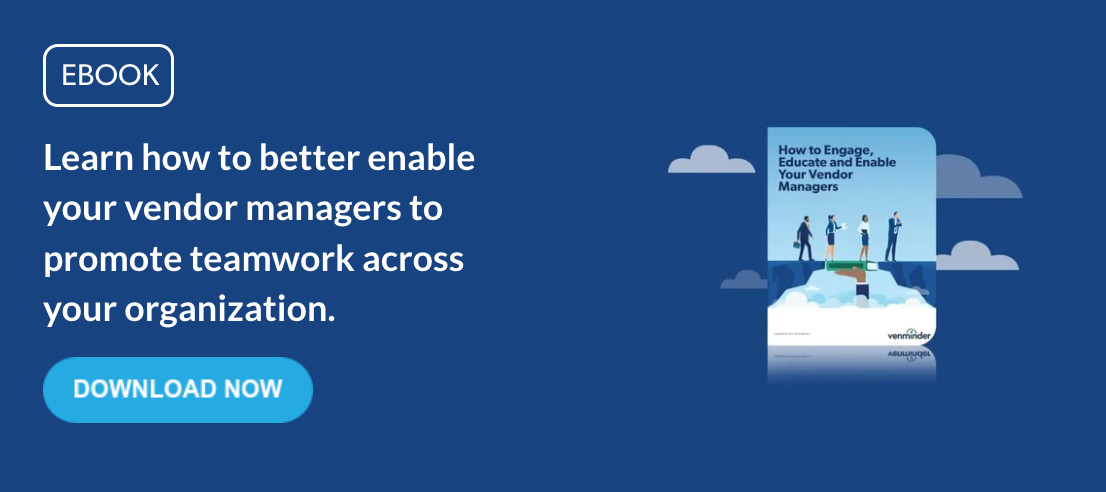For many organizations, third-party relationships are primarily managed by various vendor owners or vendor managers. These individuals are vital to the success of vendor relationships, as they perform functions like completing risk assessments, negotiating contracts, managing the vendor’s risk and performance, and remediating issues as they emerge.
Considering all these critical responsibilities, it’s important to enable your vendor managers and provide them with the tools and processes they need for success. Here are some tips to make sure your vendor managers are supported.
How to Enable and Support Your Vendor Managers
A common complaint from vendor managers is a general lack of support or guidance from the vendor risk management team. Vendor managers are often expected to execute their third-party risk management (TPRM) activities quickly and flawlessly, which can be a significant challenge if they’re left to fend for themselves.
To avoid creating a sink or swim environment for your vendor managers, here are three ways you can enable them throughout your program:
- Invest in a dedicated vendor risk management platform – Vendor managers have many ongoing responsibilities, which can quickly become overwhelming as your vendor inventory grows. A vendor risk management platform is a useful tool that can automate tasks, send reminder notifications, and create a more organized environment for important vendor documents. Saving your vendor managers valuable time and effort will be well appreciated.
- Create specific and achievable key performance indicators (KPIs) – Like most employees, vendor managers are often motivated by performance ratings and the potential for increased compensation. Consider working with your human resources department to develop some KPIs that are specific to vendor management. For example, you may want to measure the percentage of TPRM deliverables that are completed on time. Each vendor manager should have at least one of these in their performance reviews. This ensures that they’re recognized for the high-quality work they do that keeps your organization safe from vendor risk.
- Engage peers for additional support – Vendor risk management is always evolving, with new best practices and updated regulations. It probably isn’t realistic to expect your vendor managers to stay on top of all these trends and industry news in addition to their daily responsibilities. Engaging with other vendor risk management professionals in peer groups and professional organizations can help you stay informed of industry best practices, which you can then pass on to your vendor managers.

Common Mistakes to Avoid
Vendor manager enablement isn’t always considered a high priority for many vendor risk management teams. But consider the risks your organization faces if your vendor managers are overwhelmed and unable to perform their tasks effectively.
As you begin to strategize on how you can support your vendor managers, here are some common mistakes you’ll want to avoid:
- Poor communication – Vendor managers should be receiving clear and consistent communication with your vendor risk management team and other stakeholders like subject matter experts (SMEs). This will help optimize processes and avoid any misunderstandings about what you’re trying to achieve.
- Failing to check in throughout the engagement – Vendor engagements don’t end after the contract is signed. It’s important to continuously check in with your vendor managers, from onboarding to offboarding, so your team is aware of any issues that need to be addressed.
- Forgetting to request their feedback – Rather than wait until your vendor managers think of approaching your team with a question or advice, it’s important to actively solicit their feedback. You may want to consider holding regular office hours to encourage vendor managers to discuss any new or ongoing issues. And remember to follow up with your vendor managers to give assurance that you genuinely care about their success.
Enabling and supporting your vendor managers is an important activity that shouldn’t be overlooked. When your vendor managers know they have continued support from the vendor risk management team, they’ll be more likely to perform their tasks to the highest standards.






.gif?width=1920&name=Sample-Graphic-Animation%20(1).gif)




